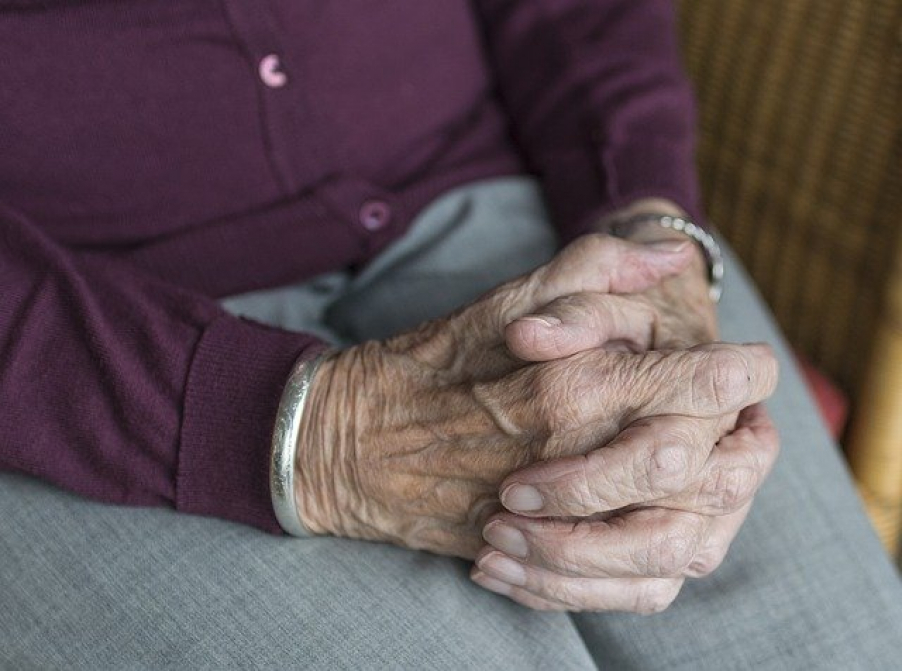Calming methods - how to keep a dementia person calm
Dementia is stressful, both for the patient and the carer. Stress can lead to upsetting behaviour and agitated moods. There needs to be a focus on keeping a relaxed atmosphere and to do this, we need to put in as much as possible into keeping a stress free environment.
Music
Research has shown that listening to music releases endorphins in the brain which triggers happy, positive feelings all across the body. Playing music can also help drown out other extraneous sounds that may be upsetting the patient. The type of music you want to play will very much depend on the patient and what their likes and musical preferences are. If they like Jazz, we would not recommend a bit of heavy metal! Our full article on music therapy can be found here.
Aromatherapy
According to research using scents like lavender can rescue tension and anxiety on older patients with dementia.
Using other scents such as food scents, can also help to increase appetite and remind a dementia patient to eat. Feeling hungry/thirsty can lead to agitated behaviour, the better fed and watered a patient is, the likelihood is they will be calmer.
If you know what smells/scents the patient likes, then use these in the house. Anything that is familiar to the patient will help them to stay relaxed and give a feeling of normality in their lives.
Exercise
We talk out exercise for a dementia patient in greater detail here, but in summary exercise is crucial for keeping dementia at bay and to reduce the rate of descent in a person’s function. Exercise is great at reducing stress, helping to keep the person with dementia feel calm and less agitated. Again, as mentioned previously, exercise doesn’t have to be mean pounding the treadmill or running miles on the streets, it can mean a long walk with friends. Or, leading into our next recommendation for keeping a person calm, walking a dog is great for exercise and reaps the benefits of the therapeutic effects of looking after a pet.
Pet Therapy
Research shows that petting an animal can reduce blood pressure and caring for an animal has many benefits. A lot of people understand the fun and happiness that can be gained from playing with an animal.
Walking a dog is great for exercise, but on top of that it also gives the person a sense of responsibility and encourages social occasions when the person is out and about with other dog walkers.
The great news these days is that dogs are now being specifically trained to be ‘Dementia Dogs’. These dogs are trained to help dementia patients with numerous tasks, such as reminding their owner when they need to take their medication! We talk more about pet therapy in our article here.
Maintain Routines
Challenging and agitated behaviour can arise when the person with dementia feels like they are losing their independence and become confused. This can often be because routines, environments have changed. If in a familiar environment, the advice is to change little.
People with dementia need routine, so they know what to expect which helps them feel in control. If a routine does need to change, make sure that the person is spoken to on a number of occasions so they can get used to it as soon as possible, and stick to that routine!
Language
The language we use, the words we speak will have a distinct impression on whether the patient becomes agitated or remains calm. Raised voices and shouting will certainly not help, nor will using challenging, accusatory statements.
Carers are reminded to lower their voice where possible, talk slowly and clearly, and use terms that helps the patient feel relaxed, such as “you’re safe here” and “I’m sorry you’re upset”. This can be difficult for the carer if they feel under attack and/or being shouted at, but it’s imperative that the situation is defused as quickly as possible.
Medication
The patient may be presented with new medication to take from time to time. When this happens, it is important to make sure that the new medication will not react negatively with the existing medication resulting in distressing/agitated behaviour. Make sure this is checked with the doctor/medical person.
Also worth noting that a new medication is an addition to a regular routine, so it needs to be explained clearly and calmly to the patient, maybe on more than a couple of occasions, so that the person takes the information on board and takes the medicine when needed. To find out more about medications please see our article here.
Touch
As humans, we are programmed to react to touching. A light, gentle touch can facilitate calmness and trust, a soft rub can reduce agitation. A hug can be reassuring. As with anything, everyone is different, too much touching has obvious dangers, but using touch can be a very effective way of maintaining calmness on the part of the patient.
Final bits of advice
As indicated, if an environment is changing and new, make sure that everything is kept plain and obvious as possible. Make sure the light level is maximised.
Use assistive technology as much as you can afford and get funding support for. Losing independence is one of the key reasons why patients do not remain calm, and we have already discussed how these devices can help to maintain independence and autonomy for the patient.
Keep them active. As discussed when looking at exercise, getting out for walks, doing some gardening etc, is great for the obvious health benefits, but it also aids social interaction and increases quality of life, resulting in a happier, calmer patient.
Free care finding service





